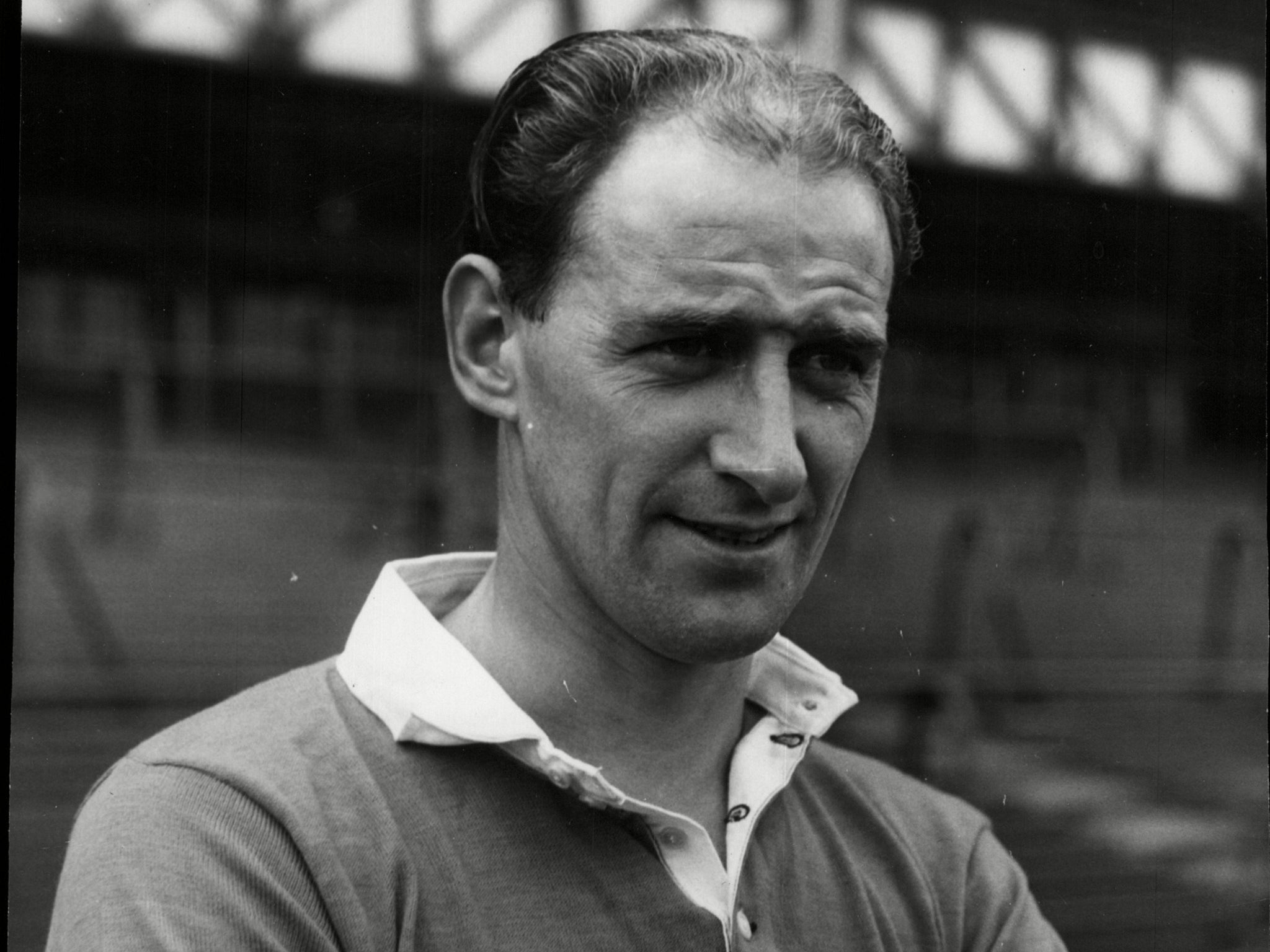Sammy Cox: Tough defender who, as part of Rangers’ renowned ‘Iron Curtain’ rearguard, won the domestic treble at Ibrox
Cox had a distinguished international career in which he had often shone against the most talented flankmen

Your support helps us to tell the story
From reproductive rights to climate change to Big Tech, The Independent is on the ground when the story is developing. Whether it's investigating the financials of Elon Musk's pro-Trump PAC or producing our latest documentary, 'The A Word', which shines a light on the American women fighting for reproductive rights, we know how important it is to parse out the facts from the messaging.
At such a critical moment in US history, we need reporters on the ground. Your donation allows us to keep sending journalists to speak to both sides of the story.
The Independent is trusted by Americans across the entire political spectrum. And unlike many other quality news outlets, we choose not to lock Americans out of our reporting and analysis with paywalls. We believe quality journalism should be available to everyone, paid for by those who can afford it.
Your support makes all the difference.The revered English winger Stanley Matthews once described Sammy Cox as the most difficult full-back he had ever faced. There could hardly have been more eloquent testimony to the prowess of the Rangers and Scotland stalwart, whose cocktail of subtle skills, acute tactical intelligence and deceptive power for a man of slight build was equalled by few defenders during the middle years of the 20th century.
An imperious left-back on the international stage, which he graced 25 times between 1948 and 1954, Cox was deployed more frequently as a left-half – a midfielder in modern parlance – by the Ibrox club, for whom he was influential as they became the first to lift the domestic treble of League Championship, Scottish Cup and League Cup in 1948-49, when he was absent from Bill Struth’s formidable side for only one game.
He was an integral part of Rangers’ renowned “Iron Curtain” rearguard, comprising goalkeeper Bobby Brown, full-backs George Young and Jock Shaw and a half-back line of Ian McColl, Willie Woodburn and Cox himself.
Having figured as a teenage amateur with Queen’s Park, Third Lanark and Dundee during the Second World War, the versatile Ayrshire man turned professional at Ibrox in May 1946. He made his League debut that August at right-back in a 4-2 win at Motherwell, then played in nearly half the team’s programme as Rangers finished the campaign as champions.
Cox delighted purists with his pacy, confident, commanding play and biting tackles. In 1947-48 he was ever-present in contributing to the first of a hat-trick of Scottish Cup triumphs; he then he shone in the treble season and in completing another League and Scottish Cup double in 1949-50. He helped Rangers to claim another League title in 1952-53.
His international debut, in a 3-0 defeat by France in Paris in May 1948, was as an emergency inside-left after Morton’s Willie Campbell, who had been selected for the role, damaged a toe-cap during the warm-up and was unable to find a replacement boot of the right size.
Thereafter, Cox was granted 24 outings in the No 3 shirt, captaining the side as he collected his last cap in a 4-2 defeat by England at Hampden Park in April 1954. It had been a distinguished international career in which he had often shone against the most talented flankmen, notably Matthews and Tom Finney of “The Auld Enemy”.
In total, Cox had made 316 senior appearances and scored 20 goals for Rangers when his first-team sojourn ended in 1955 at the age of 31. However, his top-flight day was not done. In 1956 he joined East Fife, whom he helped to escape relegation in his first season at Bayview, but he could not repeat the trick in 1957-58, when the men from Methil were demoted.
Cox emigrated to Canada in 1959, playing for two clubs in Toronto and also coaching before leaving the game to work for an industrial bearings company for 35 years until retirement. He always remained in touch with the Ibrox scene, though, being inducted into the Rangers Hall of Fame in 2003, an honour he greeted with the heartfelt declaration: “Once a Bluenose, always a Bluenose!”
Samuel Richmond Cox, footballer: born Darvel, Ayrshire, 13 April 1924; married (three sons); died Ontario, Canada 2 August 2015.
Join our commenting forum
Join thought-provoking conversations, follow other Independent readers and see their replies
Comments